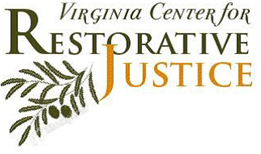For me, mourning the enormous loss of Mandela was very personal in that it evoked many memories of living and working in South Africa from 1994 to 2009. During my first two years in South Africa, I was privileged to shadow a great mentor, Morontshi Matsobane, who spent 14 years in the prime of his life (ages 26-40) in prison for his political activity – 12 of those years were spent on Robben Island with Mandela.
Morontshi was released in 1990, just three months after Mandela. Shedding bitterness and hate, he immediately returned to the community peace and justice work that put him in prison to begin with. I observed Morontshi patiently mediate peace and security needs in a transitional period marred by violence as the country struggled for its dignity and the equal redistribution of land, labor, and livelihoods. In many of these negotiations, he was interacting with the very apartheid ‘security’ apparatus responsible for his harassment, arrest and eventual imprisonment. Morontshi is one of the most gracious, forgiving and kind souls I know. He is one of many persons who we called a “little Mandela” – and there were many like him.
Mandela was not only a political revolutionary – he was a spiritual subversive in his application of reconciliation. Mandela infused the spirituality of reconciliation into the realpolitik of his time and context in ways that few others would have ever dared to. Mandela was convinced that when you insert acts of reconciliation into the “zero-sum” game of political realism, you alter the state of the world. This, I believe, is one of his greatest legacies. Among much to be learned from Mandela’s life are these four transformative lessons:
1. Mandela understood that reconciliation was personal. During the early years of Mandela’s presidency his grandson lived with him. As the story goes, one day this grandson and his best friend (a white neighbor boy) were playing together on the Mandela property and the neighbor boy broke his leg. Word has it that when Mandela heard the news, he cleared his presidential schedule, travelled to the neighbor boy’s home and he and his grandson spent two hours sitting on the floor playing with the young neighbor, now in a cast. What important presidential obligations were sacrificed in this simple but powerful act of kindness we will never know, but that is precisely the point – it doesn’t matter in light of the reconciliation transaction that needed to occur at that time, in that place, with that black president, his grandson and the white neighbors.
2. Mandela understood that reconciliation was political. South Africans will never forget when President Mandela insisted on having tea with the widow of Hendrik Verwoerd, the notorious Afrikaner prime minister of South Africa (1958-1966) who had the dubious honor of being dubbed the “architect of apartheid.” Against tremendous opposition, even outright scorn from both black and white South Africans from all political sides – Mandela sat down and had a cup of tea with the widow of the man who was ultimately responsible for imprisoning him for 27 years. His resolve was unabated and his message clear: by these actions I am showing all South Africans what I mean by reconciliation, and how such gestures will shape the New South Africa – black and white co-existing in freedom, liberated to live together with dignity and harmony.
3. Mandela understood that reconciliation and justice are inseparable. I was struck by a story told by Mandela’s long-time friend and fellow prisoner on Robben Island, Ahmed Kathrada, a South African of Indian-descent. Ahmed described how other race groups got some bread with their food (10 years before the black prisoners got any bread). Ahmed and others objected to this injustice, yet Mandela insisted that they continue to accept the bread. Why? Because Mandela understood that if they refused such basic sustenance in the cause of solidarity with the black prisoners, all race groups would remain equally oppressed. In Mandela’s mind, if Ahmed and the other prisoners insisted that bread was food to which all prisoners were entitled, all would eventually have to be given bread. Mandela was proven right.
4. Mandela understood that the arc of the universe bends in the direction of reconciliation. Many great figures in history have eloquently cast a vision of future hope in the midst of turmoil and despair. However, only the exceptional leaders are able to live into that future reality in the here and now. Mandela was one of those few. Early in his prison confinement, Mandela focused on being an abiding presence in the ‘now’ – pouring into the lives of those who surrounded him. These included the many political prisoners who were influenced by his wise tutelage (“Mandela’s University,” as it was affectionately called), and his multiple prison warders, who all eventually became his friends and allies. Ultimately, Mandela lives on in the collective psyche of South Africa and the world. Indeed, his leadership presence seemed to be encoded with the moral fiber that now guides conceptions of good governance and just polity at a global level.
Mandela transmitted his DNA to us. And herein lies the hope.
Carl Stauffer, PhD.
Assistant Professor of Justice & Development Studies
Center for Justice & Peacebuilding
Eastern Mennonite University
